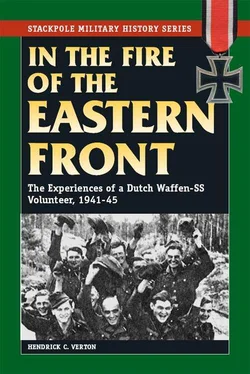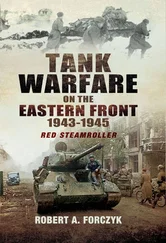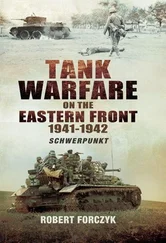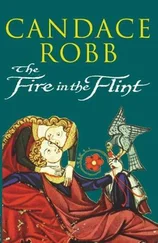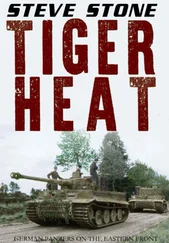The ‘black’ market in the Scheitniger-Stern was harmless in comparison to Berlin, for it was strictly forbidden. Forbidden or not, it flourished. The people were in dire need and already there were new selling spots for one’s dealings, be it in house doorways, or an abandoned bus, or a cellar. Once more everything was there. Once more, the ‘man in the street’ could not afford the prices. When one was caught scheming and dealing, then one could expect the hardest of sentences from the authorities. Every one took the risk, for they had no other choice. It was a code of honour to procure what one could for the simplest or the most urgent of needs. Prison was the result. More than once I came close to this, although I never had any ‘hot wares’ on my person.
This happened in Berlin, Dresden and in Leipzig, where police sirens were to be heard. Police in old Wehrmacht uniforms dyed black stormed out of lorries, together with Russian soldiers in jeeps. The streets were very quickly cordoned off encircling the innocent as well as the scheming dealers. One had to be like the wind to escape. One had to be fit in order to be far quicker than they. I thanked my lucky stars for my sports training as a soldier, that life-saving training for the battlefield. This was also a battlefield, but of another sort and the ruins gave plenty of cover.
One should not be too critical of the ‘black’ market, however much one thinks it criminal and unjust. It was however the only possibility one had of surviving the drastic conditions that reigned, and more drastic they could not have been. This ‘black’ market forced the last ten pounds of potatoes or carrots out of the farmers’ cellars. The only commodity one could not buy for one’s welfare was coal.
It was a very hard winter, with polar conditions in 1946/47, with the same below freezing temperatures of 20—25° that we had experienced in Silesia and Russia. People not only starved to death, but they froze too, some not being able to fend for themselves. They died by the dozen. The goods section of the railway station in Berlin was guarded like Fort Knox, to avoid the theft of fuel brickettes which were now worth more than gold. The thieves, professionals and or simply fathers of children, were now forced to thieve whilst the goods train was in motion. Some times they found outlying stations where they could uncouple a whole wagon on a dark night, and empty it of its contents. Those goods were meant for the Russian Army and the warmth of their soldiers. The joy of the ‘little German man’ was therefore doubled and trebled, for why should they be the only ones who were warm? So they joined the bands of thieves, wheelers and dealers, who were to be found in the whole of the land. “Steal what you can” was the word in those days.
The normal citizen yearned for an orderly way of life. The Soviets put the pressure on, spraying the land with psychological terror, in the form of political propaganda, such as “learn from the Soviet Union to be victorious”, or “Long live Stalin, the best friend of the German people”. The media were also involved in this brainwashing, particularly in films, in which the German soldier, the Wehrmacht was always the cowardly rogue. Russian actors roared in mime, depicting simple and naive Teutons with helmets sitting crookedly on the backs of their heads, in a stupor from alcohol. Was it an interpretation based on their own behaviour? The Waffen SS were to be seen in the field, in their black parade dress, naturally with white-blond hair, their eyes in a bestial gaze as they took part in erotically sadistic torture of a lovely lady member of the Russian partisans. Naturally enough this lady held the Russian flag high in not giving anything away. It was distaste ful and the worst sort of propaganda, but so apt coming from the Communists. They however were not the only ones.
Already at the end of the thirties, incitement against the German race started in America. They too used their film industry for their propaganda, with one of ‘those nasty Germans’ replacing one of ‘those nasty Red Indians’. Uncountable numbers of those films flooded the screens in the western zones after 1945. Everyone could see spine-chilling and gruesome stories on celluloid, for the brainwashing had begun on the screen!
The American high command possessed, of all things, a Psychoiogical Department! The Chief of this department readily admitted having manipulated and falsified stories, including parts of Hitler’s speeches.
Upon her arrival in Detmold and before I had left Breslau, Brigitte had written to my parents on my behalf. Her letter was the first contact with my parents in which she could but did not mention my name, although she informed them that I was alive and well, and that we were befriended. One must remember that letters were censored. It was in September 1946 that she received an answering letter, from my younger brother Cornelis. He had written that every member of my family had been interned. He wrote that under no circumstances was I either to return to Holl and or even write to my family. Those few words confirmed my fears and my opinions of the political situation back in my homeland. A second letter was to arrive in Detmold. This time it was from my eldest sister Louisa and contained very sad news for me. Brigitte had to in form me that I had lost two very dear members of my family, my father and one of my brothers, the eldest.
My father had died just a few weeks before she had received the first letter from Cornelis. He had died in the Dutch Internment camp in Amersfoort on 27 August. There were only bare facts because of the censorship. Therefore there were no details on the death of my brother Jan, other than that he had died eighteen months before in Assen, on 3 March. I had seen both, for the last time, two and a half years before, but had heard nothing from my family since the end of 1944. My brother Jan was just 27 years old when he died. The news was very bitter for me, very painful. My father had died in an internment camp at the age of 62. For days I could only read and re-read those few lines. I turned to stone trying to imagine the cause of his death, for those lines filled me with fear. For days this brought me to tears trying to assess the cause of death of both my father and my brother. And I could not go home? I could not write? I could not give any support in what had to be a terrible time, for the ominous warning from Cornelis had been clear enough. It was only later that I was to learn of the dimensions of the tragedy, of the Odyssey that my parents, my five brothers and my two sisters had had to suffer in my absence.
My longing to go to my family was replaced with that of wanting to go to Brigitte and it gave me no peace. However, she warned me against a visit to her in the British zone. It was too dangerous. Thousands however had managed to escape from the Russian zone, and from the organisation of their distribution. They wanted to escape from Communist rule, and did so in such numbers, that on 5 July 1946 the borders were closed. One could only travel from one zone to another with a special permit and by train. This ‘inter-zone’ permit was impossible to obtain.
Despite being trapped ‘behind the Iron Curtain’, a term first used by Joseph Goebbels and which was thereafter used also by Winston Churchill, there were escape routes, but one had to find them. I had to find them, for I was not going to be deterred from my visit to Detmold. With a map, and advice on a possible route, I started an illegal journey over the border, to an area that was called the ‘Green Border’ and checkpoint. It was still dangerous, despite its description, but did not have a minefield, barbed wire, or the wide coverless strip called the Death Strip, in full view of the guards. There were however patrolling Russian guards.
Читать дальше
